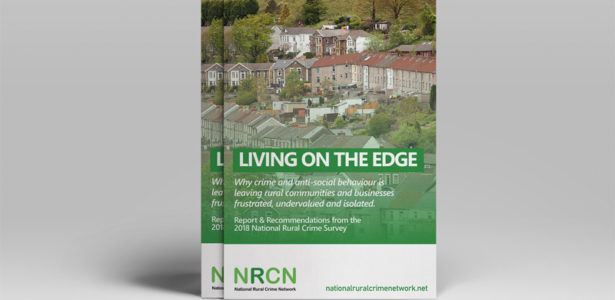Findings of Rural Crime Survey revealed

It finds that perceptions of policing are often poor, there is a fear of crime that leads to emotional strain and loss of confidence and a need for a much greater understanding of the challenges faced by rural communities and businesses.
However, there are positives for North Yorkshire with the perception of police here better than the national average after a series of initiatives following the last survey in 2015.
Julia Mulligan, North Yorkshire Police and Crime Commissioner and Chair of the National Rural Crime Network, which carried out the survey, said:
“The results of the National Rural Crime Survey are stark and worrying with nationwide trends we cannot ignore, but I am encouraged that there are positive signs here in North Yorkshire.
“Here, I am confident we are taking the concerns of rural residents seriously and I know that the North Yorkshire Rural Taskforce, formed after the last Rural Crime Survey in 2015, is making a real difference on the ground. I want to pay tribute to all those who are working hard at the heart of their community and hope their work is now emulated elsewhere in the country.
“As ever though, there is no room for complacency and nationally, this is definitely a wake up call. I will be studying the results very carefully to ensure that the results are taken seriously.”
Three years on from the first survey, today’s results – from over 20,000 people across England and Wales, including 2,203 from North Yorkshire, show:
- The perception of policing in rural communities is poor, and much worse than in urban areas – but North Yorkshire’s performance is better than the national average. Only 27 per cent of respondents nationwide say their local police are doing a good job – 11 per cent lower than when the same question was asked in 2015. But in North Yorkshire, the survey reveals 38 per cent feel police are doing a good job – showing measures taken since the last survey here are having a positive impact.
- Some of the most common concerns are not solely policing matters, like fly tipping and speeding – 49 per cent of respondents in North Yorkshire said they had seen evidence of fly tipping in the past year, topping the list of offences, with speeding second at 35 per cent. Both are clearly important for rural communities, but are not solely being policing issues with responsibility shared among local authorities and other agencies. We believe too many partners, like local authorities, are less able to respond to the needs of rural communities.
- Crime, and the fear of crime, is leading to emotional strain and a loss of confidence, particularly among young people, families and farmers – this survey busts the myths about who we tend to think of as vulnerable when we think of rural crime and shows that farmers, young people and hard working families are most affected and feeling most vulnerable. 23 per cent of people in North Yorkshire believe that crime has a moderate or great impact on their lives.
- Farmers and rural-specific businesses are living with, and in fear of, crime – 59 per cent of North Yorkshire farmers and rural-specific business owners have been a victim of crime over the past 12 months with 28 per cent saying they are fairly or very worried about becoming a victim of crime in the future.
- Communities believe crime is a big problem, but many offences go unreported – compared to 2015, the number of crimes going unreported to the police nationwide is up by a third for residents and two-thirds by businesses in rural communities – mainly because they do not feel the police and criminal justice system understand the issues or do anything about them.
- The financial strain of crime is significant – the average financial impact of crime on rural-specific business owners is £4,800, 13 per cent up on 2015.
- Ultimately, rural communities are not understood, and services do not match need – too often rural communities are considered safe and prosperous places, this preconception stops serious needs analysis being done. When the lid is lifted it is clear rural people and businesses are fundamentally misunderstood. We believe this is true of many areas, not just crime and policing, and further work needs to be done to assess community safety and service provisions policy across the board in a specifically rural context.
The survey was commissioned by the National Rural Crime Network which is made up of 30 Police and Crime Commissioners from across the country, supported by a wide range of other bodies with a deep interest in community safety and rural affairs.
The Network has produced ten recommendations as a result of the survey:
- We need Chief Constables to change the policing of rural communities
- We need to do more to understand rural crime and its impact
- We need to put that understanding into practice
- We need to put more focus on farmers and specific rural businesses
- We need to work together on organised crime
- We need the criminal justice system to understand rural communities
- We need justice to be done and be seen to be done for rural communities
- We need to make reporting crimes easier
- We need to do more to help rural residents and businesses with crime prevention
- We need to ensure victims of fly-tipping are not left to pay the price of others’ actions
Julia Mulligan added:
“I will continue to fight for rural communities, who should not have to put up with sub-standard services just because of where they live. This simply cannot be tolerated. Despite the passionate and professional police officers working incredibly hard day-in, day-out, them and the communities they serve are being let down because priorities lie elsewhere.
“Every decision affecting national policing moving forwards, from funding to safety and security, has to be set against the findings of this report. This report needs to be listened to in the future when decisions on funding are being made, we can no longer continue to see funding being sucked from rural areas to urban. It simply isn’t good enough and politicians need to sit up and listen.
“The results of the National Rural Crime Survey, and the wider feedback from rural communities, should not be underestimated. It is incumbent on policing, partners and on government and us all to listen, and to act.”
Research was carried out between 18 April and 10 June by independent research company The Buzzz. In total 20,252 responses were received from across England and Wales. 2,203 responses were received from North Yorkshire.
The full report and its recommendations can be found at www.nationalruralcrimenetwork.net/survey.
